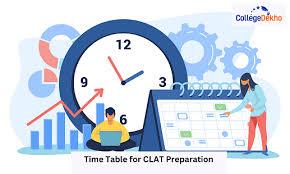Before making a significant purchase, research is always advised. There are a number of things to think about when purchasing heavy construction equipment to make sure you choose wisely. Here are 5 tips to help guide your purchase of heavy construction equipment.
1. Know Your Needs
The initial phase in purchasing heavy construction equipment involves understanding your specific requirements. Carefully analyze what type of tasks the machine will be utilized for such as excavating, bulldozing or loading. Consider aspects like the scale of projects normally undertaken and the work environments involved like terrain conditions. Taking an inventory of your exact needs upfront is important as it allows you to accurately identify the most suitable category of equipment such as excavator, bulldozer or loader. Determining requirements helps effectively narrow down the appropriate class and size of machine for your operations.
2. Compare Specifications
It is important to research the technical specifications of different heavy equipment models that may meet your needs. Specifications outline the machine’s abilities and limitations. Key specs to compare include the operating weight which affects mobility, horsepower determining power for tasks, lifting capacity if needed, and bucket size for excavators or loaders. These influence what types of jobs the equipment can handle. You should also consider if the manufacturer offers any optional attachments or customization options. Additional implements may allow a piece of equipment to perform more varied functions. Comparing specs helps ensure you select a machine with the appropriate capabilities.
3. Inspect Condition and Hours
When shopping for used heavy equipment, condition is extremely important. Thoroughly inspect any pre-owned machines you are considering in person. Check for signs of damage, wear and repairs. Also pay close attention to the equipment’s hours. The more hours on a machine, the more maintenance it will likely need going forward. Engines and components with fewer hours will provide longer remaining life.
4. Consider Cost of Ownership
While the purchase price is a major expense, don’t forget to account for ongoing ownership costs over the lifespan of the equipment. Fuel, maintenance, repairs and eventual replacement parts all factor into the total cost of ownership. Newer machines tend to be more fuel efficient and require less frequent repairs. Getting quotes from dealers on parts and service plans can help compare long-term costs between makes and models.
5. Consult References and Reviews
Talk to other contractors in your area about their experiences with different heavy equipment brands. Reliability is hugely important, so find out which manufacturers and models have the best reputations. Online reviews are also valuable resources for gathering owner feedback and common issues to watch out for. Speaking to trusted references can point you towards the brands and dealers that provide the best support.
Conclusion
With thorough research on your needs and reputed construction equipment companies, specifications, condition requirements and total cost of ownership, you’ll be well equipped to make an informed decision when purchasing heavy construction equipment. Taking the time on the front end pays off in owning a machine that meets your needs reliably for many years to come.






